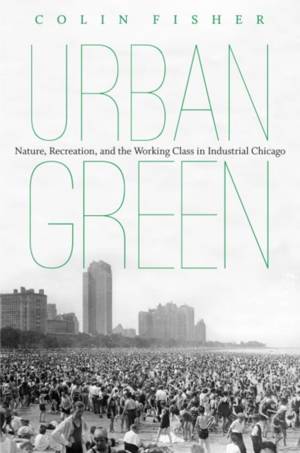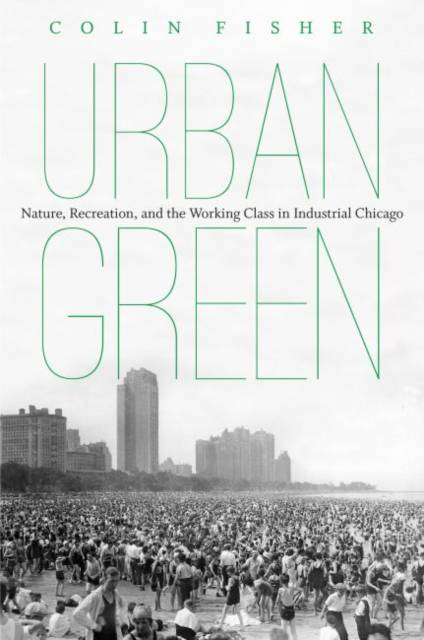
Bedankt voor het vertrouwen het afgelopen jaar! Om jou te bedanken bieden we GRATIS verzending (in België) aan op alles gedurende de hele maand januari.
- Afhalen na 1 uur in een winkel met voorraad
- In januari gratis thuislevering in België
- Ruim aanbod met 7 miljoen producten
Bedankt voor het vertrouwen het afgelopen jaar! Om jou te bedanken bieden we GRATIS verzending (in België) aan op alles gedurende de hele maand januari.
- Afhalen na 1 uur in een winkel met voorraad
- In januari gratis thuislevering in België
- Ruim aanbod met 7 miljoen producten
Zoeken
Urban Green
Nature, Recreation, and the Working Class in Industrial Chicago
Colin Fisher
Paperback | Engels
€ 53,95
+ 107 punten
Omschrijving
In early twentieth-century America, affluent city-dwellers made a habit of venturing out of doors and vacationing in resorts and national parks. Yet the rich and the privileged were not the only ones who sought respite in nature. In this pathbreaking book, historian Colin Fisher demonstrates that working-class white immigrants and African Americans in rapidly industrializing Chicago also fled the urban environment during their scarce leisure time. If they had the means, they traveled to wilderness parks just past the city limits as well as to rural resorts in Wisconsin and Michigan. But lacking time and money, they most often sought out nature within the city itself -- at urban parks and commercial groves, along the Lake Michigan shore, even in vacant lots. Chicagoans enjoyed a variety of outdoor recreational activities in these green spaces, and they used them to forge ethnic and working-class community. While narrating a crucial era in the history of Chicago's urban development, Fisher makes important interventions in debates about working-class leisure, the history of urban parks, environmental justice, the African American experience, immigration history, and the cultural history of nature.
Specificaties
Betrokkenen
- Auteur(s):
- Uitgeverij:
Inhoud
- Aantal bladzijden:
- 248
- Taal:
- Engels
Eigenschappen
- Productcode (EAN):
- 9781469619958
- Verschijningsdatum:
- 11/05/2015
- Uitvoering:
- Paperback
- Formaat:
- Trade paperback (VS)
- Afmetingen:
- 158 mm x 235 mm
- Gewicht:
- 371 g

Alleen bij Standaard Boekhandel
+ 107 punten op je klantenkaart van Standaard Boekhandel
Beoordelingen
We publiceren alleen reviews die voldoen aan de voorwaarden voor reviews. Bekijk onze voorwaarden voor reviews.









